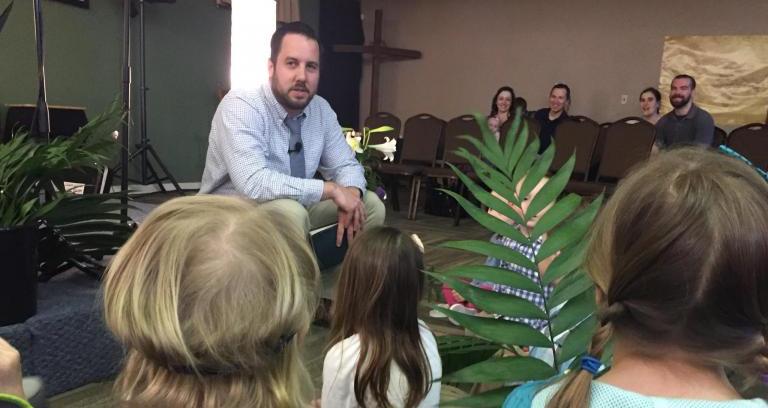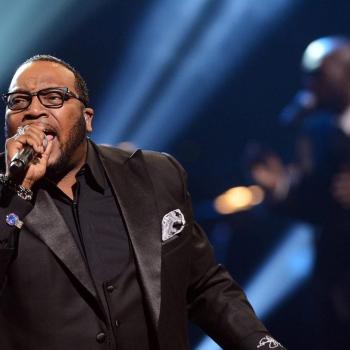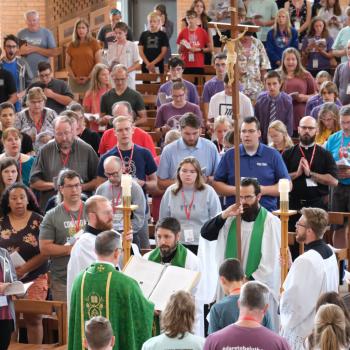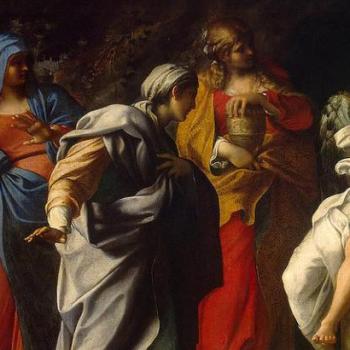In the case of the Prodigal Son parable, I’m on Team Big Brother.

Across the two millennia that the parable has been preached, Team Big Brother consistently gets a raw deal. For one thing, even though the parable literally begins with the phrase, “A man had two sons,” many tellings forget about the older son entirely. Even one of my all-time favorite songwriters, Keith Green, wrote a song about this parable from the perspective of the younger son—without ever mentioning that there’s another son in the parable.
When the elder son is mentioned, it is usually to contrast him negatively with the younger. Sure, the younger son went off to sow his wild oats, but eventually he came to his senses, repented of his ways, and returned home to ask forgiveness. Just like all good Christians do. Meanwhile, the elder son is trying to earn his Father’s love through his good works. Just like those bad old Pharisees and teachers of the law.
The only problem with this reading is that it doesn’t match what the parable actually says. After the younger son asks for his share of his father’s estate early, the father, we’re told, “divides his wealth between his sons” (v. 12). In other words, from the very outset of the story, both sons receive their inheritance. The elder son didn’t ask for it, but because the younger son did, they both received it.
While the younger son takes his inheritance and squanders it, the elder son continues to work in his father’s fields. He isn’t working to earn his inheritance since he already received it. He’s just working because he’s a loyal elder son, and that’s just what loyal elder sons do. He never asks for anything. He just quietly works for his father, while the younger son is off burning through his inheritance.
Then when the younger son runs out of cash and realizes that he’d be better off returning to the old man that eating with pigs, the father is so quick to celebrate his return that he forgets all about his loyal elder son. The party begins before anyone thinks to notify the elder son. It’s only after the elder son comes in from the field, hears the music, and asks a servant what’s going on that he learns that there’s a party celebrating the return of his younger brother.
I have to admit. As an older brother myself, I can sympathize with how this brother feels. It’s one thing if you’re going to spoil the baby of the family. But can you at least give me a heads up when you throw him a party? So, the elder brother quite understandably refuses to go in to the party that no one remembered to invite him to.
Now the father fears that he’s gained one son back only to lose another. So he goes out and pleads with the elder son. Actually the word used here to describe the father’s action is parekalei, which can mean “plead” or “comfort”— as when Jesus tells the disciples in John 14 that when he left them he would send a Paraclete, or Comforter, the Holy Spirit.
But the elder son is not ready to be comforted. He cries out to his father with some of the most heart-wrenching words in Scripture:
All these years I’ve slaved for you and never once refused to do a single thing you told me to. And in all that time you never gave me even one young goat for a feast with my friends. Yet when this son of yours comes back after squandering your money on prostitutes, you celebrate by killing the fattened calf! (vv. 29–30)
The father doesn’t challenge his son on the facts. He doesn’t chastise him for trying to earn his love or anything of the sort. Instead, he shows deep empathy and love for his son: “Look, dear son, you have always stayed by me, and everything I have is yours” (v. 31).
The son had been loyal. He had always stayed by his father’s side, even when his brother had ditched out.
There’s just one point that the father tries to convey to his eldest son: “We had to celebrate this happy day.”
Why?
“Your brother was dead and has come back to life! He was lost, but now he is found!” (v. 31)
The father is essentially telling his elder son: Look, we both know you’re my loyal son. You’ve stuck with me through thick and thin. We’re not celebrating your brother right now because he possesses any virtues you lack. We’re not celebrating him for any particular virtues he possesses at all. In fact, you know as well as I that he’s kind of a spoiled brat. But none of that matters right now. What matters is that he’s family. He’s my son and your brother. We’re celebrating simply because we thought we’d lost him, but we got him back. And when you think you’ve lost a family member only to get him back, there’s only one proper response: Celebrating with a feast.
This Lenten season, Jesus asks us to count the cost, take up our cross, and follow him. But then, in the middle of this journey, he tells this parable of a couple of brothers, one of whom veers off course for quite some time.
He’s not telling us not to keep following him. He’s not telling us not to count the costs and carry our cross. He’s simply reminding us that not everyone in the family is going to stay as committed. Some are going to stray away. Some are going to try to take advantage of the system for their own benefit.
But at the end of the day, that’s not what matters most. What matters most is that we’re family.
Sure, sometimes family members can drive you crazy like no one else could. Birth order dynamics are a real thing. But when it comes to family, we’re in it together.
As Paul writes to his sisters and brothers in Rome, we rejoice with those who rejoice and mourn with those who mourn. For, as he writes to his sisters and brothers in Corinth: “If one part suffers, all the parts suffer with it, and if one part is honored, all the parts are glad.”
















